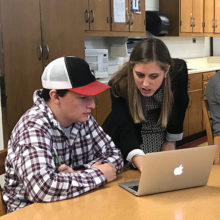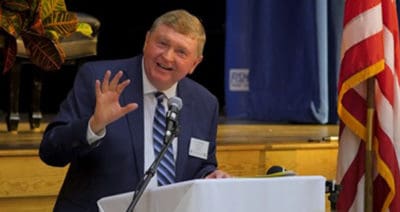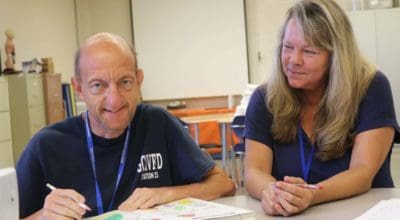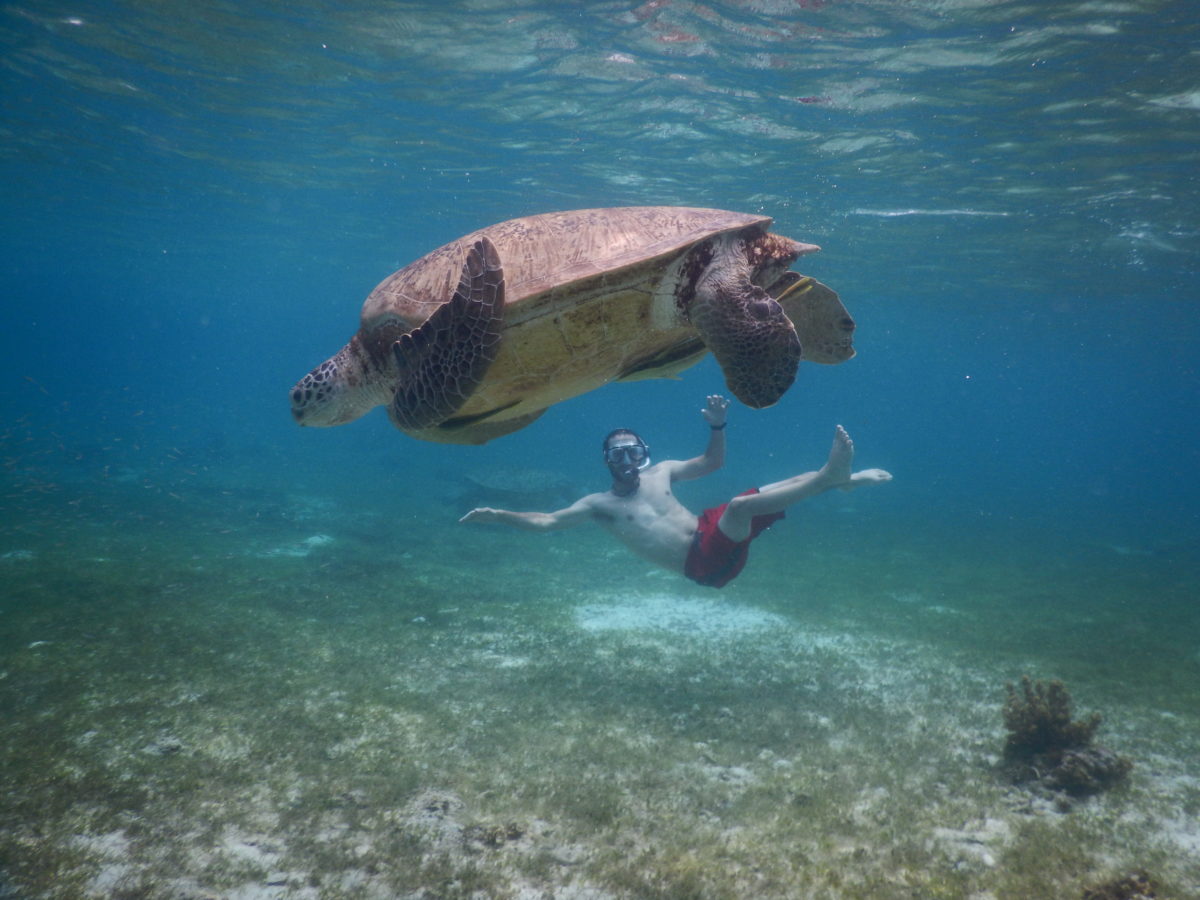

Watching instructor Zachary Schnell talk, you can’t help but smile. Try as he might to keep his hands in his pockets, they find a way out and soon he is moving around gesturing emphatically.
Schnell is the environmental science instructor at Pamlico Community College in Grantsboro, where he’s been teaching for five years.
“When I first met him — me and my husband went together — we both couldn’t help just cracking up the entire way home because he’s so genuine and honest and forthcoming,” said Annemarie Brown, one of Schnell’s environmental science students. “He’s also very passionate, and he’s very patient, which is amazing because you need that when working with students.”
“I hear all the time from students I talk to about what a great faculty member he is,” Pamlico Community College President Jim Ross said. “He makes it fun for students.”
“Well, absolutely!” Schnell responded.
Journey to the classroom
Schnell went to college with no idea of what he wanted to do. Born and raised in Wilmington, he attended NC State University. After spending his freshmen year trying to figure it out, he ran into one of his hallmates at the end of the year who told him about the environmental technology and management program.
He talked to the head of the program and decided, “I enjoy being outside. I enjoy doing stuff in the environment for that matter, so yeah, let’s just give that a go.”
Fast forward a few years, and Schnell was again trying to figure out what he wanted to do, only this time after his college graduation. He decided to look into graduate programs and found the Peace Corps’ Master’s International program, which was a partnership between the Peace Corps and graduate programs across the country. He joined the program through NC State and spent four years completing his master’s degree and serving in the Peace Corps.
“I read up on it and what it would look like,” he said, “and I thought, ‘Well, it looks fun, why not?'”
Schnell spent his first year in graduate school at NC State and then worked for two years in the Philippines doing coastal resources management.
“As I like to say, the Peace Corps for me was a fun experience, but a different kind of way of living,” he said. Schnell worked on various projects, such as coral reef and mangrove assessments. He worked with the local government in his area on ecotourism and waste management, and he had the opportunity to work with a university and local elementary schools on environmental education. After 27 months, he finished his service and returned to North Carolina for his final semester in grad school.
Once again, Schnell found himself contemplating what he wanted to do next. He had been a teaching assistant in both undergrad and grad school and really enjoyed it, so he decided to look into that path.
“I literally just went to Google one day, and typed in environmental science college instructor,” he said. He thought he might find something international again, because he had enjoyed his time abroad so much. But then he saw an advertisement from Pamlico Community College.
“It was one of those times that I discovered it on a Tuesday at 4 p.m. and then I saw the deadline was for the next day, Wednesday at noon,” he said. “So I was like, ‘Okay, if I’m going to do this, I’ve got to apply now.'”
That was back in 2015, and Schnell started as the environmental science instructor at Pamlico Community College in January of 2016.
Study abroad experience
Schnell’s experience with the Peace Corps in the Philippines stuck with him after he started teaching at Pamlico. Most community college students do not get the chance to study abroad, and Schnell wanted to change that.
“Because of my Peace Corps experience in the Philippines, I said, ‘I think I have the opportunity to make a very unique, very rare study abroad experience, especially at a community college and with very limited resources.'”
He realized that through his experience and contacts, he could create a study abroad experience well under budget of what most trips like this would cost.
“I was the tour guide and tour company that set it all up,” he said. “I was able to get the price down per person, which included everything — airfare, hotel, food, all that kind of stuff — everything ended up being about $2,800 per person for a 30-day trip to the Philippines.”
Schnell started planning in the summer of 2017, and after speaking with his students and finding four that were onboard, the group started fundraising that fall. Through a variety of fundraising efforts, they raised just over $13,000, which was enough to completely cover the costs of the four students.
At the end of the spring 2018 semester, the five of them embarked for a month in the Philippines. For one student, Aaron, it was his first time out of the country and first time on a plane. For all of the students, the experience taught them how other cultures live and take care of the environment in ways that are fundamentally different than what they were used to.
“It was a lot more of life education,” Aaron said. “We learned the way people live, [and] how to adapt to a completely different world.”
Another student, Jenny, agreed: “It was more like life lessons in a way than it was just learning something out of a book.”

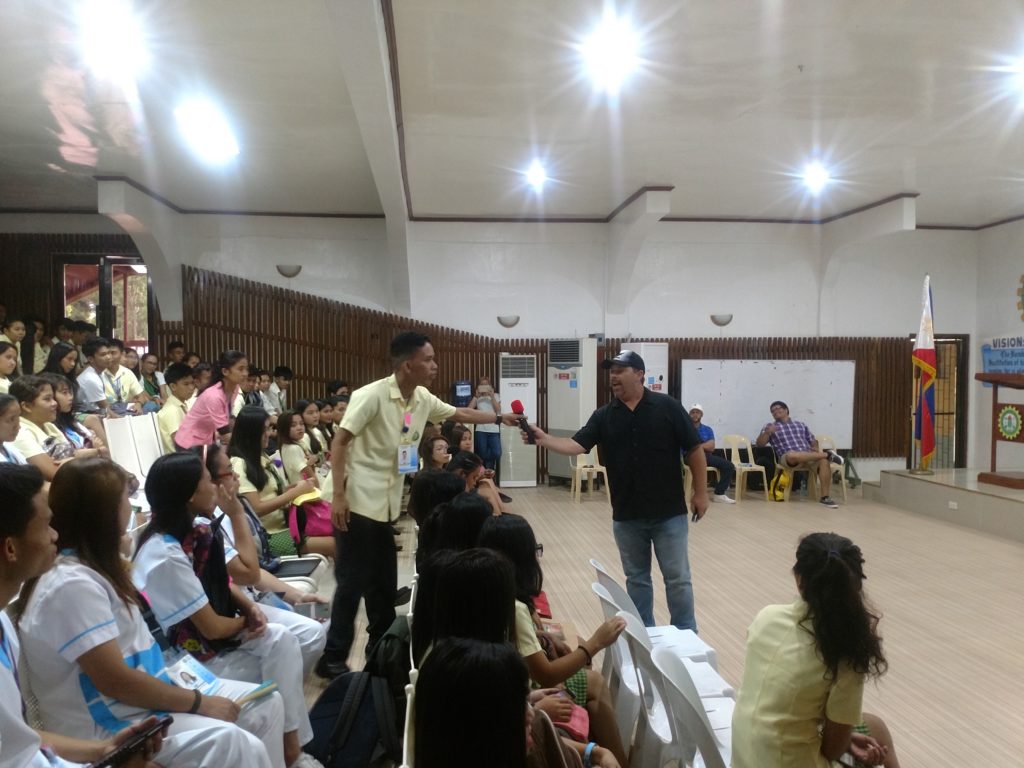

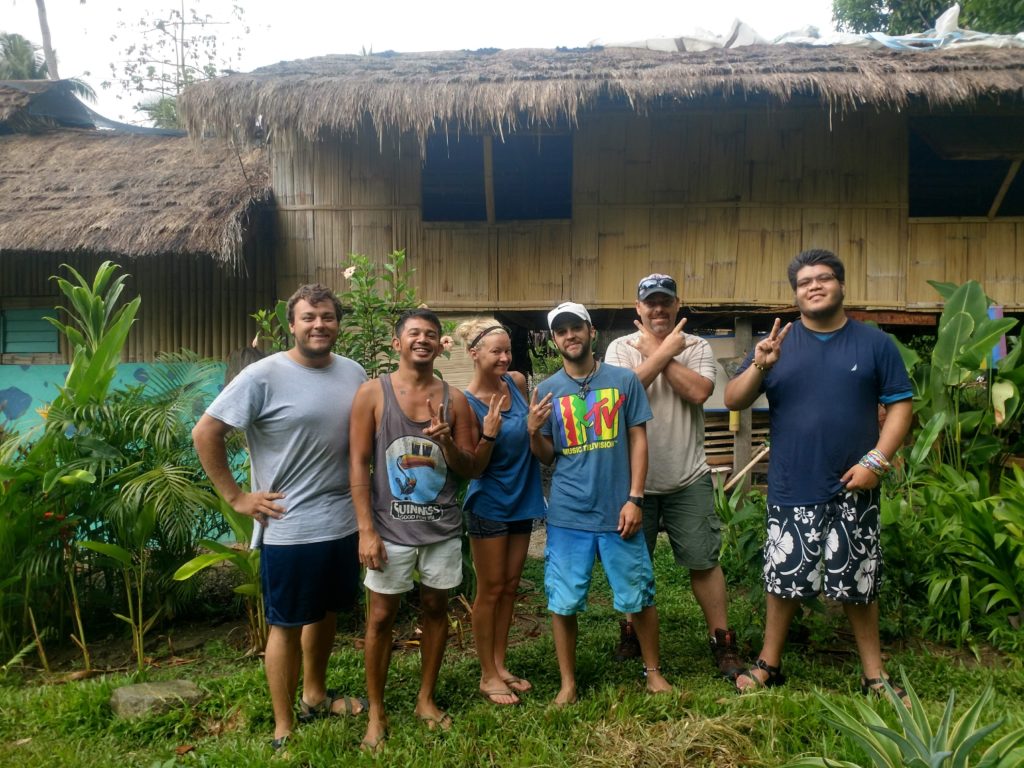

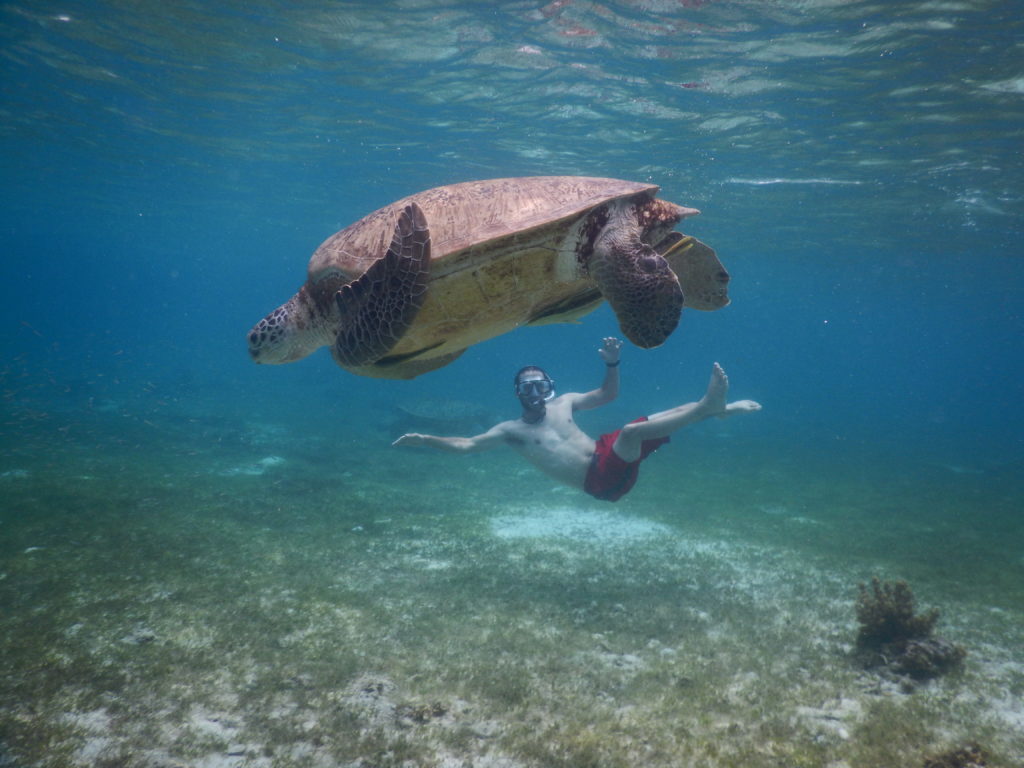

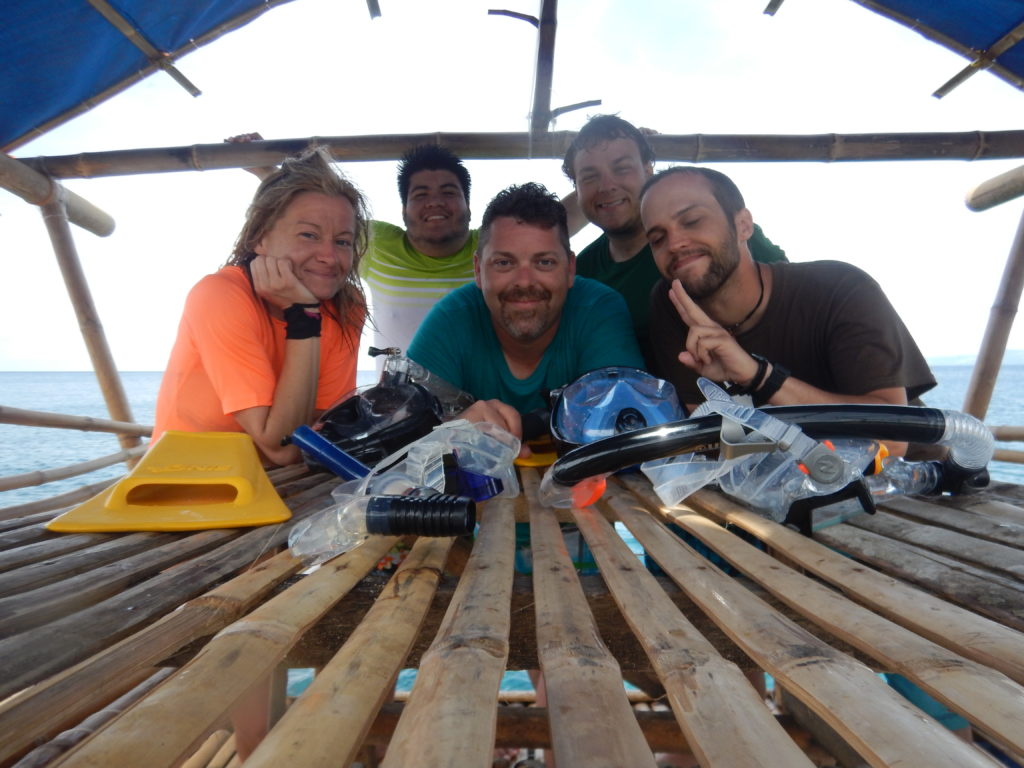
All photos courtesy of Zachary Schnell 
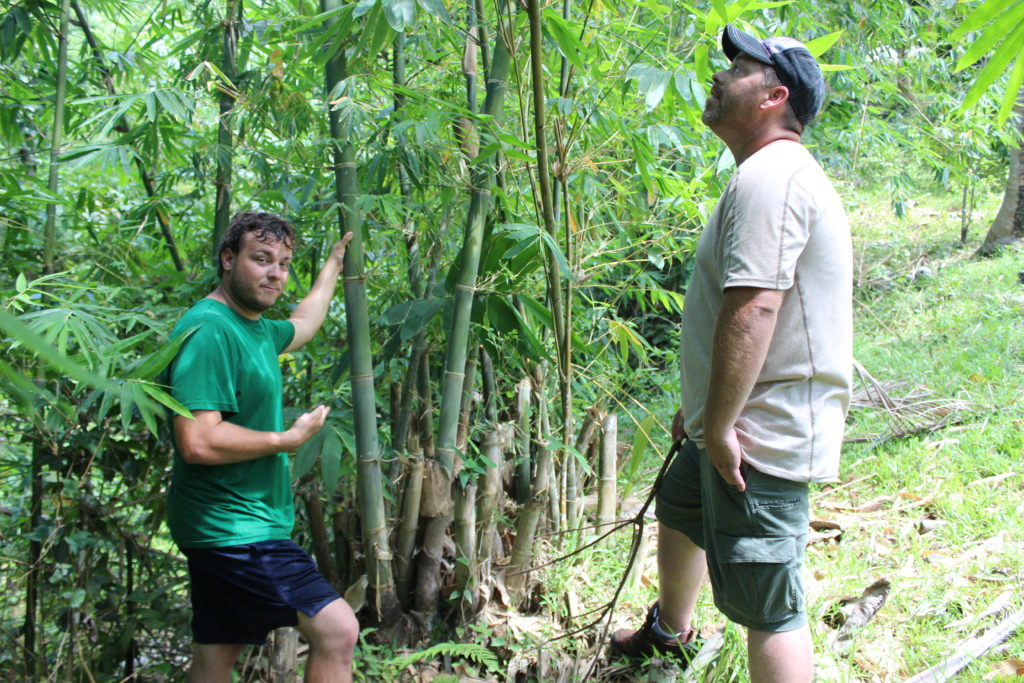
All photos courtesy of Zachary Schnell
Schnell designed the experience to teach students exactly that — how different people live and work in a culture completely different from their own. They didn’t stay in nice resorts or go out to dinner. Instead, the students learned how to cook over an open flame using ingredients they bought at the local market and take bucket showers.
“They were definitely more than a tourist,” Schnell said. “They had more of a local experience, which is exactly what I wanted to provide for them.”
In addition to these life lessons, the students learned how to do many of the things Schnell had done in his time in the Peace Corps, including working with the local government and conducting coral reef assessments. They were invited to present at the local university and took part in local celebrations.
“I feel like I learned a lot more about not just doing things by the book and actually doing them in person,” Francisco said. “The coral reef assessments, helping local government units, actually presenting in front of a university — it’s a lot different doing it versus reading something.”
The group formed a tight bond, and Schnell says he often hears from them about how much this experience meant to them. I had the chance to meet them all together over Zoom, and it was obvious they had grown close through this shared experience.
When they returned, Schnell put together a music video to document their trip. Check it out below.
Lessons learned in the classroom
Schnell describes himself as a hands-on teacher. He enjoys having classroom discussions and taking students outside to observe the concepts they are learning in nature.
“I definitely enjoy in-person instruction,” Schnell said. “That’s more my style.”
Despite this, all of his classes during his first semester teaching in 2016 were online. He had to learn to adapt his style and recreate experiments and field observations so students could do them at home.
“This class will still require you to go outside and maybe dig a hole in your backyard to understand certain concepts,” he told his online students.
Pamlico Community College made the decision to offer the program online because they had interest from students across the state, and even from outside of North Carolina.
One of Schnell’s current students, Annemarie Brown, signed up for the program because it allowed her to take classes online. Brown moved to Jacksonville, North Carolina a year ago with her husband, who is in the military. She started looking for colleges that offered associate degrees in environmental science and found Pamlico Community College.
“I was absolutely elated,” she said, because she could do some classes in-person and some online. In addition to the hour drive to campus, Brown said she was concerned about the impact driving that far would have on the environment.
“Since I was 12, I wanted to be a marine biologist,” she said. “It wasn’t until I was 18 that I realized I might not have an ocean to go to that I realized I wanted to take the path to do whatever I could to help protect it.”
Since March, all of Brown’s classes have been online thanks to the pandemic, which both she and Schnell said has been difficult. Prior to the pandemic, Schnell would arrive to class 15 minutes early and stay 15 minutes late to talk with students and get to know them better.
“I discovered that students tend to be more vocal, tend to speak up more often in class or ask a question when they have not before from doing that,” Schnell said.
Schnell encourages students to ask questions — “no question is a bad question,” he says — and would much rather have an engaged discussion than a lecture where is doing all the talking.
When classes moved completely online, he had to figure out a way to get to know his students and create that engagement online. He discovered that one-hour Zoom sessions where he is available to talk and answer questions outside of regular class time help generate that engagement he wants in class.
He also said he tries to communicate as much as possible as far ahead as possible so students have ample time to prepare. “Of course … there’s always a little disclaimer that it depends on the circumstances — things [could] change,” he said.
Schnell and his students have adapted the best they can, but he will certainly be happy when they are able to back in the classroom. He is also hoping to organize another study abroad trip to the Philippines, but like everything else, things could change.
